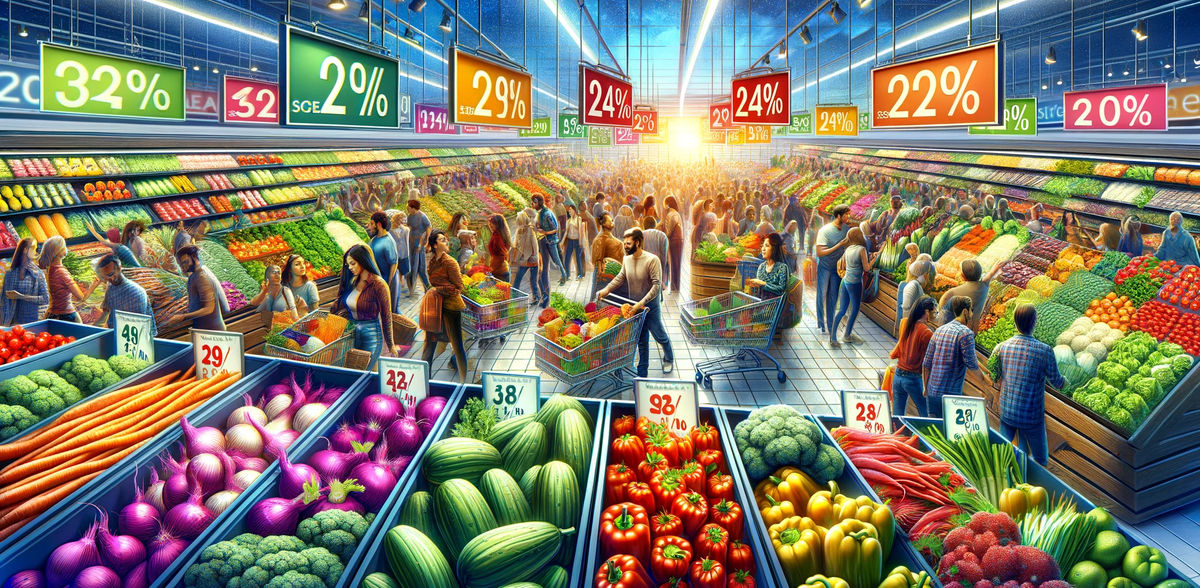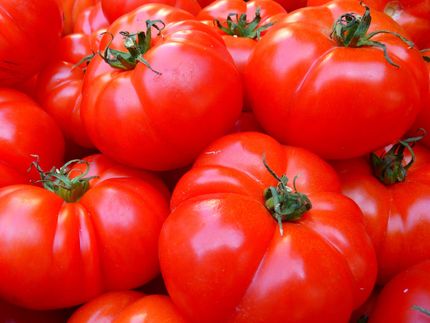Price discounts on healthful foods like vegetables and zero-calorie beverages lead to an increase in consumption of these foods
Dietary food intake has a major influence on health indicators, including Body Mass Index (BMI), blood pressure, serum cholesterol and glucose. Previous research has shown that decisions to purchase specific food items are primarily based on taste and cost. In the United States, only 12 percent and 10 percent of adults meet fruit and vegetable intake recommendations, respectively. Since affordability of food items is a limiting factor for meeting fruit and vegetable intake guidelines, researchers hypothesize that more affordable low energy-dense foods like fruits and vegetables, which are relatively more expensive than less healthy high energy-dense foods, could lead to their increased intake.
To observe the effects of a multi-level (30 percent, 15 percent and zero percent) randomized discount on fruits, vegetables and non-caloric beverages on changes in dietary intake, a team of researchers from the Icahn School of Medicine at Mount Sinai conducted a randomized, controlled trial that involved the recruitment of primary household shoppers from several New York City supermarkets. The trial comprised an 8-week baseline, a 32-week intervention, and a 16-week follow-up. 24-hour dietary recalls were conducted during the baseline period and before the intervention midpoint. In-person clinical measures (including body weight, percent body fat, blood pressure, fasting serum glucose, hemoglobin A1C, and serum blood lipids) were analyzed from week 8 (end of baseline) and 24 (midpoint). This report is from an interim analysis up to the intervention midpoint at Week 24, as the study is ongoing.
The study results, published November 22 in PLOS One, showed that the 30 percent discount led to significantly increased consumption of both vegetables and diet soda. The 15 percent discount group showed a non-significant increase in consumption of diet soda but no change for vegetables. Thus, a discount of 15 percent may not be adequate to influence vegetable intake. Unlike vegetable intake, there was no effect of the discounts on fruit intake during the initial study period up to the midpoint. Diet soda intake was inversely correlated with regular soda intake for those who received the 30 percent discount on diet soda. There were no significant differences in the clinical measures, including body weight, relative to the discounts.
“Our findings that significant discounts on health foods can lead to an increase in consumption of these foods offer a suggestion for public health officials and policymakers to consider increasing access to nutritious foods and beverages,” said senior author Alan Geliebter, PhD, Professor of Psychiatry at Icahn Mount Sinai and an expert in obesity, food intake and eating disorders. “The results highlight a potential avenue for promoting healthier dietary intake behaviors and we hope this information will be used by policy makers to consider subsidizing fruits and vegetables via modification of the Farm Bill.”
Original publication
Most read news
Original publication
Aniema Nzesi, Benedicta Owusu, Jillian Barry, Manveer Sandhu, Allan Geliebter; "Impact of a randomized controlled trial of discounts on fruits, vegetables, and noncaloric beverages in NYC supermarkets on food intake and health risk factors"; PLOS ONE, Volume 18, 2023-11-22
Organizations
Other news from the department science

Get the food & beverage industry in your inbox
By submitting this form you agree that LUMITOS AG will send you the newsletter(s) selected above by email. Your data will not be passed on to third parties. Your data will be stored and processed in accordance with our data protection regulations. LUMITOS may contact you by email for the purpose of advertising or market and opinion surveys. You can revoke your consent at any time without giving reasons to LUMITOS AG, Ernst-Augustin-Str. 2, 12489 Berlin, Germany or by e-mail at revoke@lumitos.com with effect for the future. In addition, each email contains a link to unsubscribe from the corresponding newsletter.




























































